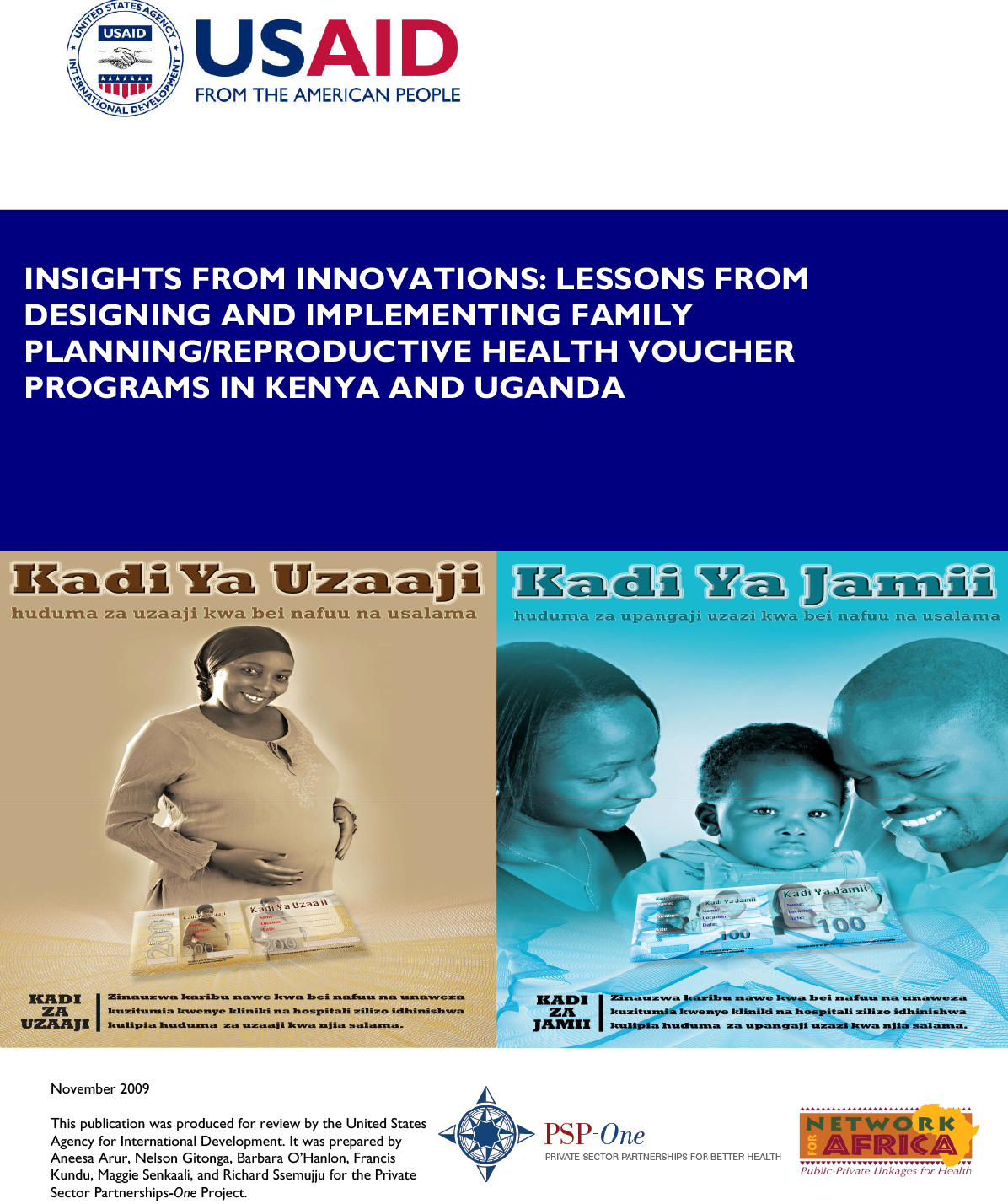
Resource Library
Insights From Innovations: Lessons From Designing and Implementing Family Planning/Reproductive Health Voucher Programs in Kenya and Uganda
Health policy in developing countries has traditionally focused on public provision of free or highly subsidized services to lower the cost of seeking care and to ensure universal access to critical services such as family planning (FP) and reproductive health (RH). However, many people in developing countries, even the poor in Sub-Saharan Africa, choose to seek health care in the private sector and pay out-of-pocket to do so. Concerns about equity have sparked interest in approaches like vouchers that can lower the financial burden on individuals by targeting subsidies directly to clients of FP/ RH products and services. A health voucher is a token that can be exchanged for a pre-defined set of health services or products. Health vouchers enable public subsidies for services or products to follow the client, rather than being tied to providers. Clients buy vouchers for a specified set of services or products at a pre-defined price, or obtain vouchers free of charge. Despite the growing interest among policymakers, donors, and FP/RH practitioners, there is limited information on the first generation of health services voucher programs in countries like India, Uganda and Kenya. The purpose of this technical report is, therefore to provide practical guidance for those involved or interested in designing, financing, or implementing FP/RH voucher programs in Sub-Saharan Africa. This report brings together insights on what has worked well and (just as importantly) on what has not worked well based on the Reproductive Health Voucher Project (RHVP) in Uganda and the Reproductive-Health Output-Based Aid (RH-OBA) voucher pilot program in Kenya. Although the primary focus of this paper is to identify guidelines to help design an effective FP/RH voucher program, many of the observations included can be applied to all voucher programs designed to increase use and access of critical health services.
Resource Type : Report
Country : Kenya, Uganda
Year : 2009-12-07T11:00:00
Language : English
Project : SHOPS


